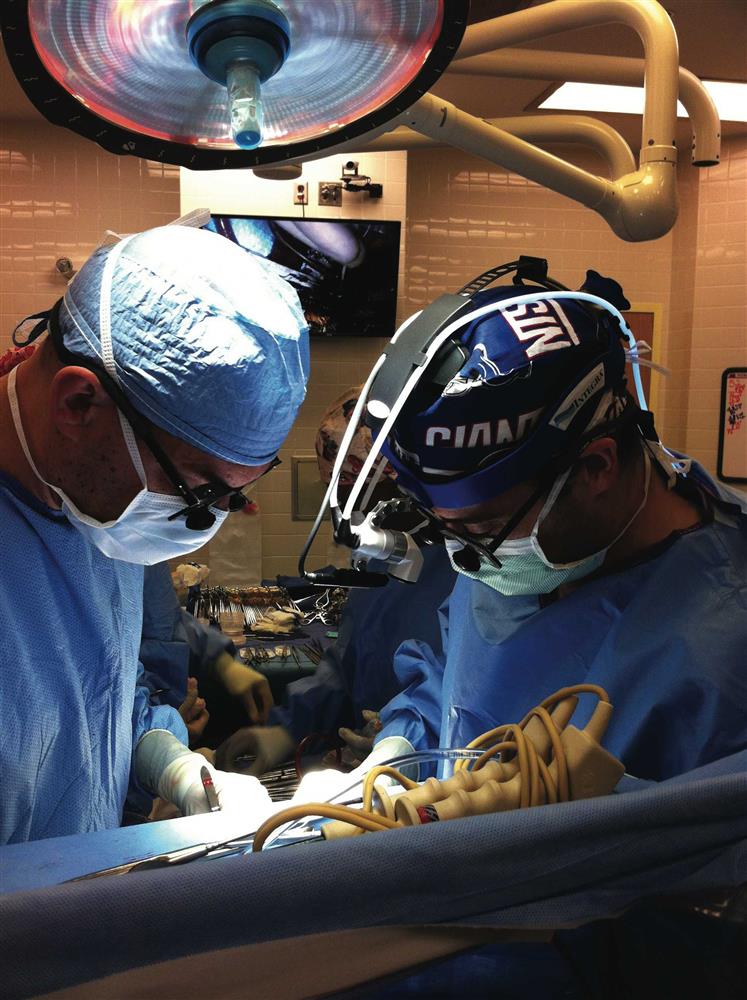UMMC's congenital heart surgery team bests national averages in two years

As it marks its two-year anniversary this month, the congenital heart surgery team at Batson Children’s Hospital has reason to celebrate.
Not only is the program thriving with more than 550 operations completed, but the outcomes of those procedures are better than the national average in patients expected to do worse.
In the first of two separate analyses of outcomes from the Society of Thoracic Surgeons Congenital Heart Surgery Database (STS-CHSD), Dr. Daniel DiBardino, assistant professor of surgery and congenital heart surgeon, found that outcomes for seven benchmark procedures performed between April 2010 and November 2011 were better than the national average for hospital discharge mortality and within the expected norms for lengths of stay.
“When we look at the data over the 18 months, we’ve excelled in every major category in the STS database,” DiBardino said.
Those major categories include some of the most complex operations to repair congenital heart defects. Before the recruitment of Dr. Jorge Salazar, associate professor of surgery and chief of congenital heart surgery, and DiBardino, patients needing a repair for a complex congenital heart defect were sent out of state for these procedures.
With the establishment of the multidisciplinary team of specialists, the program has achieved great strides in its first two years, including the first Norwood procedure ever done in the state and the first heart transplant at Batson in eight years. The team expects to complete more than 400 operations in 2012.
DiBardino said the most exciting and dramatic outcomes were those for Norwood procedures, a series of operations most often used to repair hypoplastic left heart syndrome on babies born with only half of a heart.
“These are the sickest children in the hospital,” DiBardino said. “For the 19 babies evaluated in the last 22 months, we’ve had to do 63 procedures with a discharge mortality rate of seven percent. The national average for this operation is between 17 and 19 percent.”
In a second separate analysis of outcome data, DiBardino looked at outcomes for more than 20,000 patients in the STS-CHSD and found that African-American patients had significantly higher mortality rates, complications and a longer length of stay than other races. The analysis also found that females had a significantly shorter hospital stay than males.
Considering males make up the largest percentage of patients that have undergone congenital heart surgery at Batson and that many of their patients are African-American, the team knows the odds are already stacked against them.
“As a program, we know that the majority of our patient population, based on STS data, can be expected to have higher mortality and complication rates and longer hospital stays,” DiBardino said.
“Despite the fact that the national statistics show that these things affect outcomes, we are demonstrating that the very best outcomes can be achieved independent of race and gender,” Salazar said.
“We are overcoming these challenges and achieving outcomes that are equal to or better than the very best programs in the country,” he said. “It’s something Mississippi can be proud of.”
DiBardino presented the findings of his second analysis at the Society of Thoracic Surgeons’ annual meeting, where it was chosen as a 2011 Richard E. Clark Paper, an honor given to papers representing high quality research using the STS-CHSD.
He acknowledges that the numbers are good, but says they represent a national standard.
“The bar is set so high for a new program or a new surgeon that if you’re not achieving these results, people are going to start wondering why.”
DiBardino is also quick to point out that the importance of the STS-CHSD is to provide realistic expectations of what can be achieved.
“No other specialty has this type of data so readily available. All of us, like it or not, are benchmarked against that database.”
The STS-CHSD was established in 1989 to advance quality improvement and patient safety in cardiothoracic surgeries. Ninety-eight congenital heart surgery programs currently report outcomes to the database, representing approximately 80 percent of all programs in the U.S. The data is maintained by the Duke Clinical Research Institute.


